What Is The Most Important Thing That You Learned?
I mentioned in an earlier Insight what I think are the most important things you can learn by being on Physics Forums. This time, I tackle the question of what I think is the most important thing I learned in becoming a physicist. I get asked that question frequently. Whenever I do an outreach project with either high school or college students, or even sometimes even when I talk to the general public, I often get asked the question on what I think was the most important thing that I learned in becoming a scientist, or in this case, a physicist.
When students asked me that question, they often expect that I would say that learning quantum mechanics, or electromagnetism, etc. would be the most important thing. So it comes as a surprise to many when I told them what I believe is the most important thing that I learned in becoming a scientist: Learning To Learn!
One of the things about being a scientist is that we always have to learn new things all the time! There’s always something that we haven’t heard of, something that is new, something we have never quite fully understand, or something puzzling. You are always faced with trying to find out about something. What we have acquired along the way, starting from undergraduate years to graduate school to postdoctoral work, and even though our early careers, is the ability and skill to learn. I’m not just talking about reading a book or paper and trying to understand something. I’m talking about knowing WHERE to look, WHO to ask, WHAT do I need to do to understand that, HOW do *I* understand something? We all work in different ways. Knowing how I, personally, comprehend something is very important because I have consciously tried to discover when I can make something click in my head, and when it can’t. How the material is presented, how I organize my thoughts in my head, how I work things out on paper, etc. are all my own personal preferences and skills that I know help me to understand something. In other words, at some level, I know what makes me tick and how I can grasp something. To me, this is the most valuable and important thing I learned in becoming a scientist.
So why is this the most important thing I learned? Besides the fact of what I’ve mentioned earlier about scientists always having to learn new things, it is also an important factor career-wise. Not many of us are lucky enough to know what we want to do and get to do it. Often, we have to make career changes, often changing fields of studies due to one reason or another. Switching fields is not as uncommon as one would think, and in such cases, you definitely are faced with new knowledge to understand and comprehend. This is where the ability to learn becomes invaluable because, in any situation, you are almost starting from scratch. This is where the skill that you used to obtain that Ph.D. could be employed to get you up to speed in another field. The subject matter may be different, but if you’ve honed your skills properly, it is the same set that you will need to use to learn the new subject matter. It certainly happened to me when I switched from condensed matter physics to accelerator physics.
So yes, learning how to learn is the most important thing I learned in becoming a scientist.
PhD Physics
Accelerator physics, photocathodes, field-enhancement. tunneling spectroscopy, superconductivity

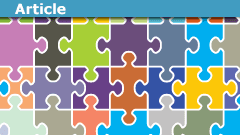
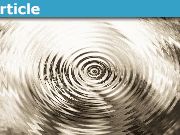
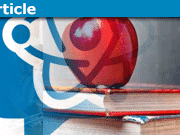
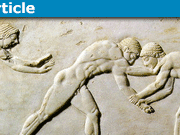


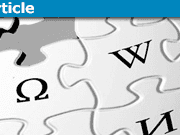
Author: ZapperZ
https://www.physicsforums.com/insights/important-thing-learned/Me? I think the most important thing I ever learned was that "to be or not to be" is absolutely not the question. It worked well in the early Turing machines, but has destroyed the computational power of every computer since
Most answers on this forum were very general, ideas, collections of observations etc.Actually, my description of what I found to be the most important thing I learned is VERY specific. It is just that the applicability of what I learned is broad.
What you wrote is the type of answer that most students who asked me this question were expecting. Yet, the specific knowledge itself, to me, maybe be important in a particular task or job, but it can easily not be applicable in others. Knowledge of how one should hang a shower curtain doesn't help when one is working with others on organizing a workshop or trying to figure out what is the best way to remove a passenger involuntarily from an airplane.
On the other hand, being observant of what works and what doesn't, as in noticing how to hang a shower curtain, or anticipating the needs of a large group of diverse people attending a workshop, or not being oblivious to the fact that often times, bad publicity can easily destroy goodwill and public image just like that, are all skills and abilities that have no boundary of applicability. It applies whether one is working in an environment where one has to solve "small oscillation problems" or in the hospitality industry.
It is why I cited "learning how to learn" as the most important skill that I learned. It means that no matter what I do or where I go, it is the skill that I rely on the most in navigating the social and technical environment that I have to deal with. There are always new things, new encounters, etc. One has to continually learn things, often things that one doesn't understand before. It is why having the skill and capability to learn, and learn systematically and accurately, is why I find to be the most important.
Zz.
Most answers on this forum were very general, ideas, collections of observations etc. I think the most important specific "thing" I learned was how to treat quadratic forms e.g. small oscillation problems through normal modes and diagonalization. I used these ideas in many areas of control theory, and linear systems theory.
I do not know how true this story is but Conrad Hilton was once asked what he learned after a lifetime in the hotel business. I figure he saw just about everything in his time after dealing with so many people (clients) in his hotels. He is reputed to have said, 'the only thing I know for sure is that the shower curtain works best when it is inside the tub while showering'.
Author: ZapperZ
https://www.physicsforums.com/insights/important-thing-learned/An excellent observation. While I have never been in basic research like physics I worked in the computer and mobile hardware and software area. Even in my field, it was a critical skill to be able to learn things quickly and build things that had not been built before. Not only was it personally satisfying, it was also very rewarding in that I got to work on some of the most interesting projects. One thing I always joked about was one reason I was good at my job was that I could make mistakes faster than anyone I worked with. But, in fact, this was very key to my success. I could better understand problems by exploring multiple solutions and as I encountered those problems I found it provided a wonderful insight into how the systems might work together.
Either taylor expansions or differential equations :-p
For me, the most important thing learned was that the laws of nature themselves are tractable and that combining mathematics and experiment through the scientific method was the way to do it. More or less what Wigner expressed in
The Unreasonable Effectiveness of Mathematics in the Natural Sciences.
See:
https://www.dartmouth.edu/~matc/MathDrama/reading/Wigner.html
Secondarily, the important lesson for me was that I could participate in this scientific process of discovery. These were deep, visceral, hard won lessons for me.
Very interesting article. For me, the interference of waves along with diffraction theory would be my answer to the question, followed by electricity and magnetism along with Maxwell's equations, but @ZapperZ provides an interesting answer.
Still great Insight!
A close second, is learning how to find information. Too many times here at PF, we answer questions for people where the information can be located by a simple web search.
Many people have never been taught what information can be found in a public library or university library. They seem hesitant to approach anyone who works at the library to ask questions about locating information or about the types of reference materials which are available.
Sometimes, the questions at PF are esoteric enough that the information requires some digging and may not be readily available on the web, but often I find the information is trivial to locate, yet the OP appears clueless, as if his web experience begins and ends with PF.
That, "learning how to learn", is not the only answer to the question,"…most important thing you learned."
Nomatter if for Physics or something else, maybe some other science, other such general answers are, "how to think", and "how to analyze".